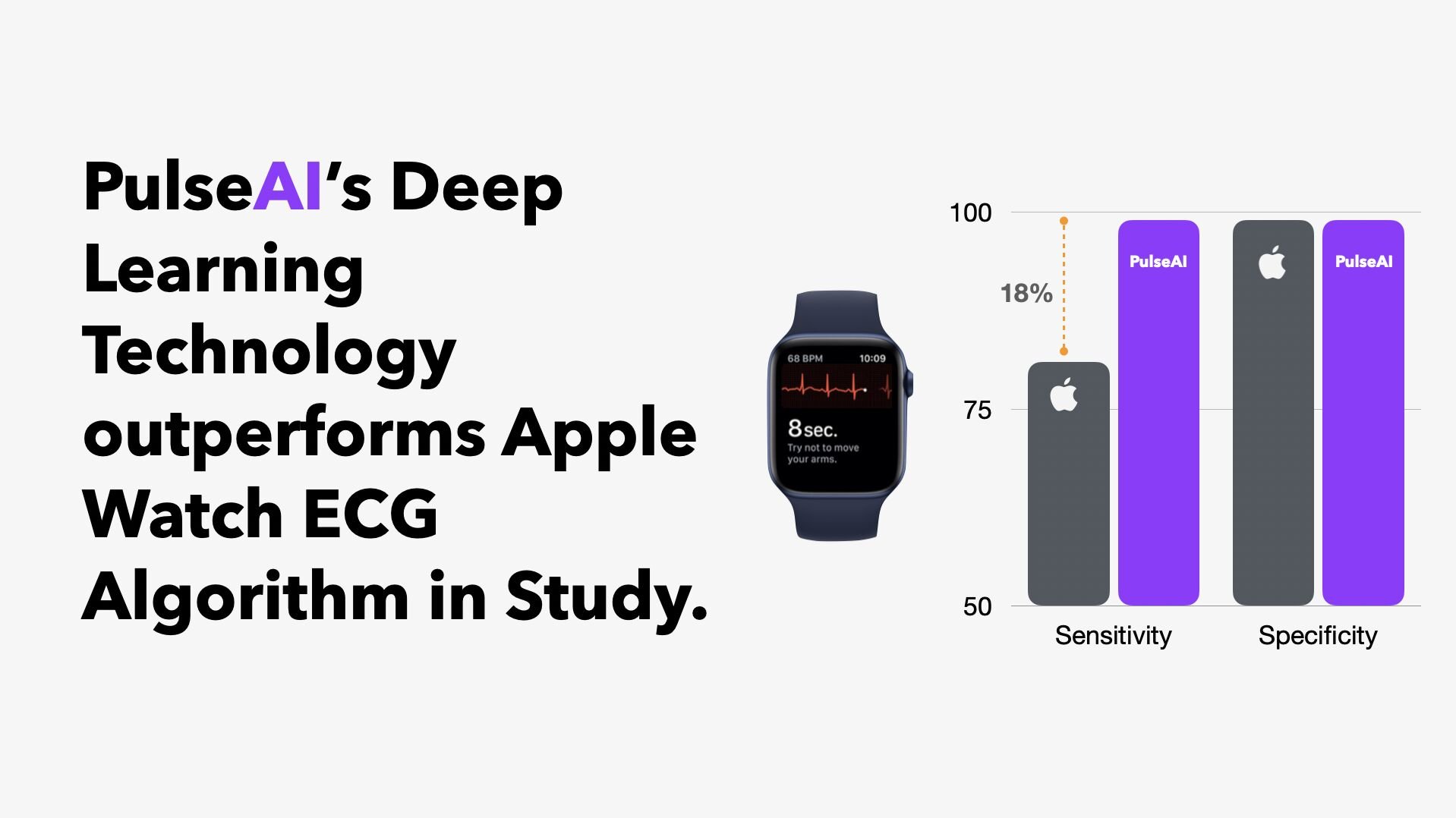
Latest blog posts
Follow our blog to keep up-to-date

PulseAI's AI-Powered ECG Software Outperforms Apple Watch Algorithm in Detecting Atrial Fibrillation
We are thrilled to announce the release of the results from a clinical study conducted by Beacon Hospital in Dublin, Ireland. The study showcased the superiority of PulseAI's cutting-edge deep learning AI algorithm over the Apple Watch ECG algorithm in detecting atrial fibrillation (AF). These findings have been accepted for presentation at the Heart Rhythm Conference from May 19-21, 2023.

PulseAI announce clinical validation of Atrial Fibrillation algorithm
Belfast-based PulseAI has announced the successful clinical validation of its AI-powered algorithm for diagnosing atrial fibrillation. The algorithm validation results will be presented at the international Computing in Cardiology conference in Tampere, Finland from the 3rd-7th of September.

Reducing False Positive Atrial Fibrillation detections with the PulseAI neural network
Atrial fibrillation (AF) is the most common form of arrhythmia. AF episodes can last from a few seconds to several days, and they may produce symptoms such as heart palpitations, shortness of breath, and tiredness. Although AF is not typically deadly, it can cause significant repercussions such as stroke, therefore it's critical to detect and treat the condition as soon as feasible. False positive AF detections are also an issue, in some cases resulting in needless drug usage, such as anticoagulants, which pose a number of risks to the patients when prescribed unnecessarily.

Whitepaper: Performance Reporting at PulseAI
At PulseAI, we are constantly looking for ways to improve our product. As engineers, we love to get stuck into the hard technical challenges, but we know that a huge part of our business is bridging the communication gap between AI and humans.
Our AI Principles state that AI should have its performance assessed in a representative way. This article aims to introduce you to how we assess AI performance at PulseAI for the different products we make. The aim is to empower our users to better understand what our reported model perfor- mance means in the real world, and to start a discussion around some of the more difficult topics.

AI-based ECG interpretation for Smartwatches
The Electrocardiogram (ECG) is one of the most used diagnostic tools in medicine globally. A key component of the complete clinical picture is an accurate ECG interpretation, which plays an essential role in patient management. ECG interpretation currently relies on visual assessment by skilled clinicians to recognise abnormalities. ECG interpretation is difficult for humans as it involves the ability to recognise subtle patterns and to have the visual acuity to recognise those patterns in real time. These are functions that humans traditionally struggle with but machines can excel at.
